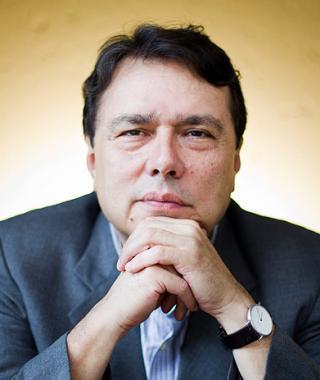Date:
Location:
 Speaker: Claudio Beato, Full Professor, Sociology Department, Federal University of Minas Gerais (UFMG); Ruth Cardoso Visiting Professor, Columbia University
Speaker: Claudio Beato, Full Professor, Sociology Department, Federal University of Minas Gerais (UFMG); Ruth Cardoso Visiting Professor, Columbia University
Moderator: Frances Hagopian, Jorge Paulo Lemann Senior Lecturer on Government, Harvard University
This will be a discussion about the institutional dimensions for violence control. Usually, crime in urban communities can be explained by a number of factors such as social and economic structures, the influence of social institutions like families and schools, previous violence that has marked the history of these communities and organizational and institutional issues. In Brazil specifically, the least explored issue has been that of justice institutions.
Claudio Beato received his Ph.D. in Sociology from the Rio de Janeiro Research Institute University, Brazil. He was a visiting professor at the Center for Brazilian Studies, Oxford University, England. He was also visiting Scholar at the David Rockefeller Center for Latin American Studies, University of Harvard. Currently he is the CRISP coordinator (Center for Studies in Criminality and Public Security, UFMG). He is also a Level 1-B Researcher from National Council for Scientific and Technological Development – CNPq, Brazil. He is the author of more than 40 scientific publications and 2 books concerning the subjects of criminality, violence and public politics of security.
He serves as a consultant for the World Bank Group, for the Inter-American Development Bank and for the United Nations Development Programme (UNDP) in Honduras, El Salvador, Colombia, Argentina and Uruguai. He is also a consultant for the Federal Government of Brazil and the Minas Gerais Government. Dr. Claudio has developed a number of projects for the government of Minas Gerais regarding homicide control in areas of risk, integrated management of police processes, the usage of intervention technologies, information technologies and community policing. He also contributes to the development of projects of public security intervention in many other Brazilian states and countries in Latin America.
